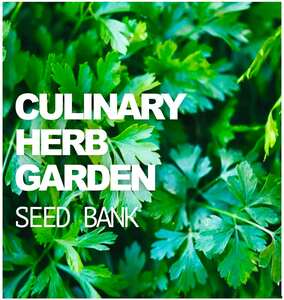Top Gardening Methods to Boost Plant Growth and Health And Wellness
Wiki Article
The Comprehensive Overview to Horticulture: Discover the Advantages of Different Designs and Techniques
Gardening incorporates a varied selection of styles and techniques, each offering special advantages customized to specific preferences and environmental contexts. From the structured style of formal yards to the organic beauty of permaculture, recognizing these variants is necessary for growing a space that not only prospers but additionally mirrors individual values and appearances. Moreover, sustainable methods play a vital function in enhancing neighborhood ecosystems and guaranteeing long-lasting success. As we explore these various designs, it ends up being obvious that the selections made can considerably influence both the garden's health and its contribution to the surrounding environment.Comprehending Gardening Basics
Comprehending the essentials of gardening is crucial for growing a flourishing and lasting yard. An effective horticulture endeavor starts with a strong structure of knowledge regarding dirt, plant option, and climate factors to consider.Selecting the right plants is just as important. Comprehending their particular needs-- such as sunshine, water, and spacing-- makes certain compatibility with the regional environment and dirt conditions. This option process should additionally take into consideration the growth routines and lifecycle of plants, allowing for a well balanced and visually pleasing garden.
In addition, efficient watering methods are important. Over-watering and under-watering can both bring about plant stress and condition. Applying a routine based upon seasonal adjustments and plant demands can improve water performance.
Popular Horticulture Styles
What defines the essence of popular horticulture designs? These styles encapsulate diverse visual principles, functional demands, and ecological factors to consider, inevitably showing the garden enthusiast's individual vision. Amongst one of the most distinguished designs is the home garden, defined by its casual layout and a vibrant selection of flowers and veggies. This approach stresses an unified mix of shade and structure, developing a welcoming environment.Alternatively, the formal yard embodies balance and order, typically featuring geometric patterns and thoroughly trimmed hedges. This style connects beauty and sophistication, with carefully chosen plants that strengthen an organized visual.
The Japanese garden offers a calm and reflective experience, utilizing all-natural elements like water, stones, and plants to create a relaxing environment. It concentrates on simplicity and balance, encouraging reflection.
Furthermore, xeriscaping has acquired appeal, particularly in dry regions (Gardening). It focuses on drought-resistant plants and reliable water usage, advertising sustainability while enhancing landscape beauty
Advantages of Container Horticulture
Container gardening uses a wide variety of advantages that make it an attractive alternative for both beginner and experienced garden enthusiasts alike. One of the main benefits is adaptability; containers can be placed in various areas, permitting garden enthusiasts this link to optimize sunlight exposure and produce aesthetically enticing arrangements. This adaptability makes it feasible to yard in areas where traditional in-ground gardening might not be practical, such as balconies, patio areas, or urban atmospheres.Additionally, container gardening offers much better control over soil conditions. Garden enthusiasts can customize the soil mix to suit specific plants, making sure optimum drain and nutrient accessibility. This is especially valuable for individuals residing in locations with bad or infected dirt.
An additional considerable benefit is the lowered danger of pests and diseases. Container plants can be kept track of more quickly, and any concerns can be attended to without delay. This technique can minimize the spread of intrusive varieties.
Sustainable Horticulture Practices
Lasting gardening techniques are necessary for promoting ecological health and improving biodiversity in our ecosystems. These techniques prioritize environmental balance, resource conservation, and making use of organic techniques to reduce negative environmental influences. By employing methods such as composting, gardeners can reduce waste while enhancing dirt wellness, therefore promoting a prospering garden community.Water preservation is an additional essential element of lasting horticulture. Techniques such as rainwater harvesting, drip irrigation, and making use of drought-resistant plants can considerably minimize water use while ensuring that plants get adequate wetness. In addition, integrating native plant this content species into yard designs supports regional wildlife and reduces the need for chemical fertilizers and pesticides, which can be harmful to the atmosphere.

Eventually, sustainable gardening methods not only add to healthier gardens however additionally promote a more durable setting, offering long-lasting benefits to both the garden enthusiast and the bordering community.
Tips for Successful Gardening
To cultivate a growing yard, garden enthusiasts must focus on mindful preparation and thoughtful implementation of their horticulture strategies. Begin by examining the regional environment and dirt problems, as these elements considerably influence plant choice and growth. Choose plants that are fit to your environment, thinking about native types that will certainly prosper with marginal intervention.Applying a well-structured format is crucial (Gardening). Use friend growing methods to promote biodiversity and natural insect control, while making sure each plant has ample news room for development. This not only enhances looks yet also boosts overall plant health
Normal upkeep is vital to an effective garden. Establish a constant routine for watering, weeding, and feeding. Mulching can help preserve dampness and subdue weeds, while additionally including organic matter to the dirt.
Don't undervalue the relevance of monitoring. Consistently monitoring plant wellness and growth will certainly allow for prompt treatments. Be open to discovering and adjusting; horticulture is a constant process that profits from experience and experimentation. By focusing on mindful planning, implementation, and continuous maintenance, garden enthusiasts can achieve a vibrant and effective garden that prospers throughout the seasons.
Final Thought


In recap, the expedition of diverse gardening styles and strategies reveals their diverse advantages, contributing to both aesthetic charm and ecological health and wellness. Container horticulture provides flexibility and ease of access, while sustainable techniques enhance ecological stewardship.
Report this wiki page